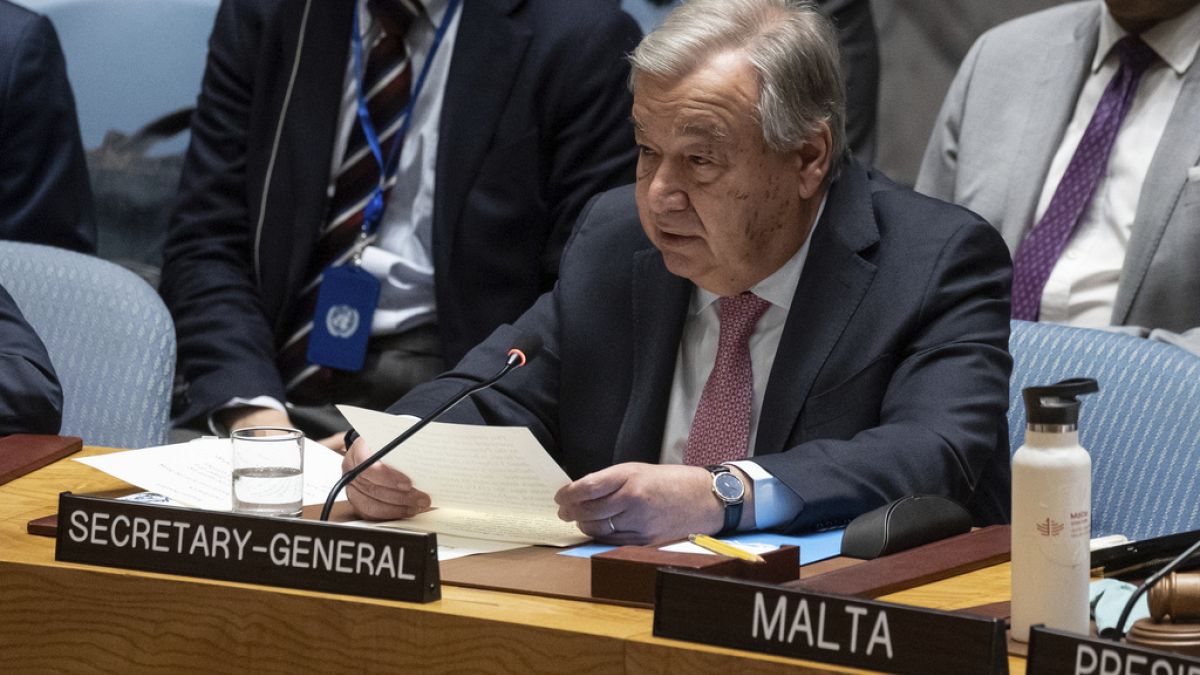
UN Secretary General Antonio Guterres is calling for “maximum restraint” and de-escalation after Iran launched more than 300 drones and missiles at Israel early on Sunday.
“We have a shared responsibility” to deescalate tensions and work for peace, he said while opening the emergency session of the Security Council on Sunday.
“It’s time to step back from the brink. It’s vital to avoid any action that could lead to measured military confrontations on multiple fronts in the Middle East. Civilians are already bearing the brunt and paying the highest price. And we have a shared responsibility to actively engage all parties concerned to prevent further escalation.”
Joe Biden does not want an escalation in the regional conflict or a “wider war” with Iran, and is “working on the diplomatic side of this personally,” the White House national security spokesman John Kirby told NBC News on Sunday.
“The president has been very clear. We don’t seek a war with Iran. We are not looking for escalation here. We will continue to help Israel defend itself”, Kirby said.
The US on Sunday highlighted its role in helping Israel thwart Iran’s aerial attack as President Joe Biden convened leaders of the Group of Seven countries in an effort to prevent a wider regional escalation and coordinate a global rebuke of Tehran.
The US assisted Israel in shooting down dozens of drones and missiles fired by Iran on Saturday in what was the first time it had launched a direct military assault on Israel. Israeli authorities said 99% of the inbound weapons were shot down without causing any significant damage.
US officials said that despite the high interception rate, Iran’s intent was to “destroy and cause casualties” and that if successful, the strikes would have caused an “uncontrollable” escalation across the Mideast. US officials said Biden told Israeli Prime Minister Benjamin Netanyahu, in an effort to contain tensions, that Washington would not participate in any offensive action against Iran, and the president made “very clear” to Netanyahu “that we do have to think carefully and strategically” about risks of escalation.
The push to encourage Israel to show restraint mirrored ongoing American efforts to curtail Israel’s war against Hamas in Gaza, which is now in its seventh month, and to do more to protect civilian lives in the territory.
While the US and its allies were preparing for days for such an attack, the launches were at the “high end” of what was anticipated, according to the officials, who were not authorised to publicly discuss the matter and spoke on condition of anonymity.
At one point, at least 100 ballistic missiles from Iran were in the air simultaneously with just minutes of flight time to Israel, the officials said. Biden and senior officials monitored the firings and interception attempts in real time in the White House Situation Room. The officials said there was “relief” in the room once they saw that the missile defense efforts had succeeded.
A senior US military official said American aircraft shot down more than 70 drones and cruise missiles, while US destroyers in the eastern Mediterranean Sea downed between four and six ballistic missiles, and an American Patriot missile battery in Iraq shot down one more.
“At my direction, to support the defence of Israel, the US military moved aircraft and ballistic missile defence destroyers to the region over the course of the past week,” Biden said in a statement late on Saturday. “Thanks to these deployments and the extraordinary skill of our servicemembers, we helped Israel take down nearly all of the incoming drones and missiles.”





